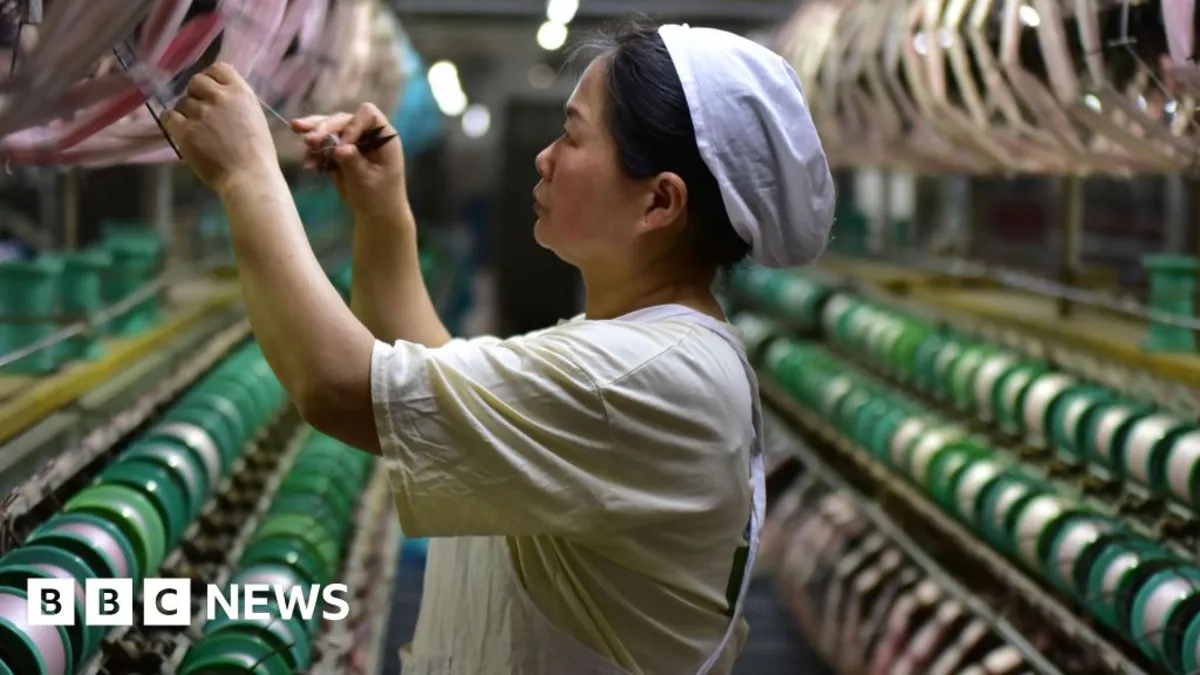
In a significant development in international trade relations, China has issued a stern warning to various countries regarding the potential consequences of conceding to US demands in ongoing trade discussions, particularly concerning President Donald Trump's tariffs. A spokesperson from the Chinese Commerce Ministry expressed these concerns following reports that the Trump administration intends to exert pressure on other governments to limit their trade with Beijing in exchange for exemptions from US import taxes.
The current atmosphere of trade negotiations has intensified, with the Trump administration actively engaging with various trading partners. A notable event was the recent visit of a Japanese delegation to Washington, while South Korea is scheduled to begin its negotiations this week. Since President Trump's return to the White House in January, the imposition of hefty tariffs on Chinese imports has been a focal point of his economic policy, impacting not only China but also other nations facing tariffs on their goods.
The Chinese spokesperson emphasized that "appeasement cannot bring peace, and compromise cannot earn one respect." This statement reflects China's belief that all nations should uphold the principles of fairness and defend the integrity of international economic and trade rules, as well as the multilateral trading system. These comments were particularly pertinent following reports that the US plans to leverage tariff negotiations to coerce various countries into imposing new trade barriers against China.
Experts suggest that countries like Japan are caught in a difficult position. Jesper Koll from the Japanese online trading platform Monex Group noted that approximately 20% of Japan's profitability is derived from the United States, while about 15% is sourced from the People's Republic of China. This statistic underscores Japan's reluctance to choose between its strong economic ties with the US and China.
Since President Trump's inauguration, there has been a cascade of announcements regarding tariffs. Trump has asserted that these import taxes are designed to motivate US consumers to purchase more American-made products, boost tax revenue, and stimulate major investments within the country. However, critics argue that revitalizing manufacturing in the US is a complex challenge that could take decades, with the economy facing significant difficulties in the interim.
In a surprising turn, President Trump has made several backtracks on his earlier tariff announcements. Just hours after imposing steep levies on numerous US trading partners, he declared a 90-day pause on those tariffs for all countries except China, amid increasing backlash from both politicians and the financial markets. Currently, tariffs on imports from China have surged as high as 145%, while other nations are subject to a blanket US tariff of 10% until July. The administration has indicated that when the new tariffs are combined with existing ones, some tariffs on Chinese goods could soar to 245%.
In light of these developments, the US Treasury Department and the US Trade Representative have been approached for comments regarding their strategies and the implications of the tariff negotiations. Since the announcement of tariffs, Trump has stated that over 70 countries have expressed interest in initiating negotiations, highlighting the global ripple effects of the ongoing trade tensions.